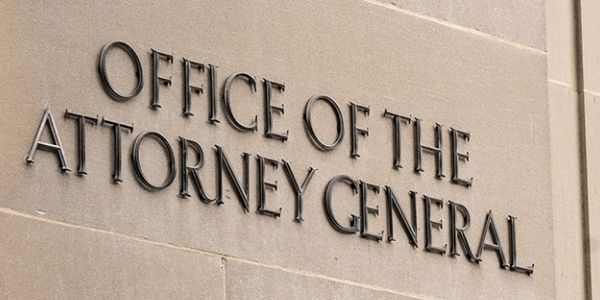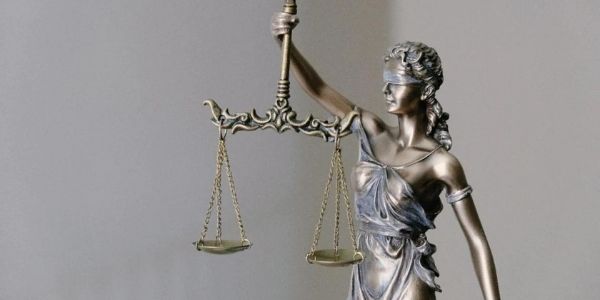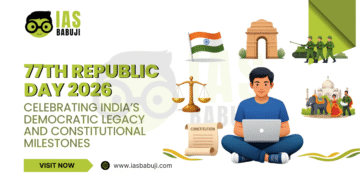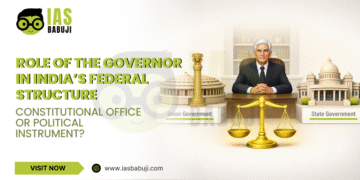To begin with, there are various concepts one must cover for the IAS exam. Further, it is essential to cover to get the best scores in the exam. If not everything, all the necessary points are necessary to understand. Therefore, to help you with the same in this article, we have added complete information of the Attorney General of India and know who is the present, first Attorney General of India. Further, understand who appoints the Attorney General of India. It is also a vital concept for the IAS exam preparations. So, try to know about the concept and prepare for the exam. Let’s begin.

Introduction
To begin with, the Attorney General of India is a part of the Union Executive. AG is the highest law officer in the country. Further, article 76 of the Constitution provides for the office of AG of India.
| Type | Judiciary of India |
|---|---|
| Abbreviation | AG |
| Residence | New Delhi, India |
| Seat | N-234-A, Greater Kailash-I, New Delhi |
| Appointer | President of India on the advice of the Union Cabinet |
| Term length | Per the President’s discretion |
| Constituting instrument | Article 76 of the Constitution |
| Formation | 28 January 1950 |
| First holder | M. C. Setalvad |
| Deputy | Solicitor General of India Additional Solicitors General of India |
Attorney General of India
Further, the Attorney General of India is a part of the Union Executive. Further, he is the Indian government’s chief legal advisor and is its principal Advocate before the Supreme Court of India. Besides, the President of India appoints them on the advice of the Union Cabinet under Article 76(1) of the Constitution. Further, the AG has the right to speak and take part in the proceedings of both the Houses of Parliament. However, he has no right to vote when he participates in the proceedings of the Indian Parliament.
Further, he is not considered a government servant, and he practices privately, too, as he is not debarred from private legal practice. There is no right term for the Attorney General (AG) of India. Besides, the attorney general enjoys the right of audience in any court of the country when concerned with his duties. Further, also enjoys all immunities and special privileges available to an MP. In addition, he has the right to participate in the proceedings of both the houses
Who appoints Attorney General of India?
Then, the AG is appointed by the President on the government’s advice. Further, they must be qualified to be assigned a judge of the Supreme Court. Also, they must be a citizen of India and must have been a judge of some high court for five years. Besides, procedures and grounds for the removal of AG are not stated in the Constitution.

Further, in the below table, we have added a list of Attorney Generals in India.
| Attorney General of India | Name of the AG | Tenure |
| 1st Attorney General | M.C. Setalvad | 28 Jan 1950 – 1 Mar 1963 |
| 2nd Attorney General | C.K. Daftari | 2 Mar 1963 – 30 Oct 1968 |
| 3rd Attorney General | Niren de | 1 Nov 1968 – 31 Mar 1977 |
| 4th Attorney General | S.V. Gupte | 1 Apr 1977 – 8 Aug 1979 |
| 5th Attorney General | L.N. Sinha | 9 Aug 1979 – 8 Aug 1983 |
| 6th Attorney General | K. Parasaran | 9 Aug 1983 – 8 Dec 1989 |
| 7th Attorney General | Soli Sorabjee | 9 Dec 1989 – 2 Dec 1990 |
| 8th Attorney General | J. Ramaswamy | 3 Dec 1990 – Nov 23, 1992 |
| 9th Attorney General | Milon K. Banerji | 21 Nov 1992 – 8 Jul 1996 |
| 10th Attorney General | Ashok Desai | 9 Jul 1996 – 6 Apr 1998 |
| 11th Attorney General | Soli Sorabjee | 7 Apr 1998 – 4 Jun 2004 |
| 12th Attorney General | Milon K. Banerjee | 5 Jun 2004 – 7 Jun 2009 |
| 13th Attorney General | Goolam Essaji Vahanvati | 8 Jun 2009 – 11 Jun 2014 |
| 14th Attorney General | Mukul Rohatgi | 12 Jun 2014 – 30 Jun 2017 |
| Lastly, 15th Attorney General | K.K. Venugopal | 30 Jun 2017 till date |
Duties of the Attorney General of India
Let us now look into the duties of the Attorney General of India.
- In the first place, he is responsible to give advice to the Government of India (GoI) upon such legal matters.
- Further, the President always refers him for the legal matters that suits his interest and Attorney General
- Besides, to appear on behalf of the GoI in all cases in the Supreme Court or in any case in any High Court.
- Then to represent the GoI in any reference made by the President to the Supreme Court under Article 143.
- Lastly, to discharge the functions conferred on her/him by the Constitution or any other law.
Limitations
- In the first place, he cannot decide or hold a brief in cases in which AG is called upon to decide or appear for the Government of India
- Further, he shpuld not accept any appointment as a director in any company or corporation.
- Besides, they should not be advise or hold a brief against the GoI.
Term of the Attorney General of India
- In the first place, he can be removed by the President at any time
- Further, he can quit by submitting his resignation only to the President
- As the Attorney General of India is decided by the President on the advice of the Council of Ministers, conventionally AG is removed when the council is dissolved or replaced

IAS Exam Preparations
Further, we will discuss some of the essential exam tips that will help you get the best exam results as we all are aware of the exam syllabus and the pattern. Besides, to get the best scores in the IAS exam, one must plan properly as this exam requires a good amount of time investment and hard work. However, no one is sure of getting selected, so it is also a risk. But, many IAS officers cleared the exam with the best rank in their first attempt and without coaching. Further, we also believe reading the success stories of other IAS officers will help with your exam preparation. So, click here to know more on the same.
Further, with the IAS exam preparations, one must know the exam syllabus and the pattern. Then, for this one can refer to the previous year’s papers. In addition, one can solve moc tests as they will help you effectively. Besides, know which are the standard books for the exam and try to study from those boos. Answer writing practice is also one of the important things for the IAS main exam. Besides, essay writing is also an important thing for the IAS mains. In addition, understand which are the trending topics for the exam and prepare for them. Also, go through the various platforms for the test series.
Further, one can visit the official site of the UPSC, to know more about the IAS exam and other details. Click here.
Conclusion – Attorney General of India
In summary, from the above article, you will understand who is the first and current Attorney General of India. Further, understand who appoints the Attorney General of India. Later, as a part of the UPSC exam syllabus, it is one of the important topics covered. Therefore, we have added all the necessary details that will help you with the IAS exam. Also, we have added some useful tips to get the best scores in the exam. Further, get all the other UPSC exam study materials here. It will assist you with the exam preparations. Read More. Later, in the IAS exam one must clear all the three rounds to get selected. Besides, go through the official website to get the latest updates related to the exam.

FAQs – Attorney General of India
Lastly, below we have added some FAQs on the topic discussed above.
KK Venugopal is present the Attorney General of India
In the first place, one must understand the exam syllabus and the pattern of the paper. Further, try to study from the best books.
Mukul Rohatgi is the 14th Attorney General (AG) of India.
The Attorney General of India is paid equivalent to the salary of a Supreme Court judge which is Rs 90,000.
The Attorney General is the highest law officer in India.
Editor’s Note | Attorney General of India
In brief, the above article Attorney General of India and present Attorney General of India. Further, we have covered who appoints the Attorney General of India. It is a vital concept for the UPSC exam, and we have also added the necessary links that will help you with your exam preparations. Further, we suggest you keep one book to write down all the essentials, and you can study the same during the exam as one must plan properly and prepare well for the exam. It is hard, but one can easily clear it with the right direction. Besides, this will not only check your subject knowledge and your dedication towards your goals. Finally, we wish you good luck with your exam, do well.






